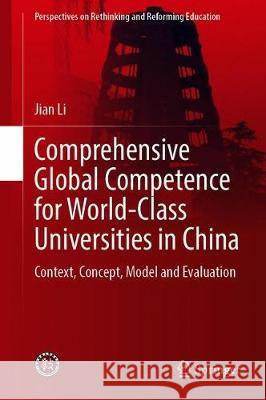Comprehensive Global Competence for World-Class Universities in China: Context, Concept, Model and Evaluation » książka
topmenu
Comprehensive Global Competence for World-Class Universities in China: Context, Concept, Model and Evaluation
ISBN-13: 9789811516399 / Angielski / Twarda / 2019 / 155 str.
Comprehensive Global Competence for World-Class Universities in China: Context, Concept, Model and Evaluation
ISBN-13: 9789811516399 / Angielski / Twarda / 2019 / 155 str.
cena 403,47
(netto: 384,26 VAT: 5%)
Najniższa cena z 30 dni: 385,52
(netto: 384,26 VAT: 5%)
Najniższa cena z 30 dni: 385,52
Termin realizacji zamówienia:
ok. 16-18 dni roboczych.
ok. 16-18 dni roboczych.
Darmowa dostawa!
Kategorie:
Kategorie BISAC:
Wydawca:
Springer
Seria wydawnicza:
Język:
Angielski
ISBN-13:
9789811516399
Rok wydania:
2019
Wydanie:
2020
Numer serii:
000790661
Ilość stron:
155
Waga:
0.41 kg
Wymiary:
23.39 x 15.6 x 1.12
Oprawa:
Twarda
Wolumenów:
01
Dodatkowe informacje:
Wydanie ilustrowane











